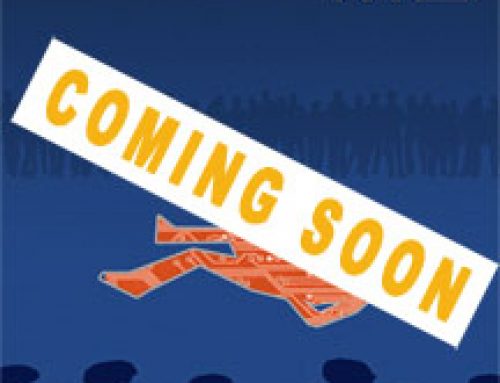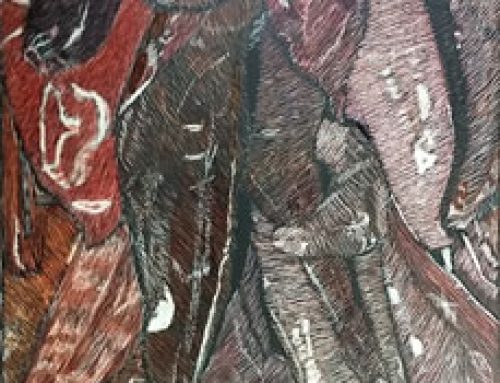Mark Harris poses the question: “Is Sci-Fi Out of Ideas?” in his article on EW.com (http://www.ew.com/ew/article/0,,20169296,00.html). While I don’t think the commentary is as cutting as it could be, it did make me ponder.
I’m currently in the throws of getting my SF novel ready to market. Soon I’ll have to try and guilt one of my novelist friends to read it and give the verdict that, while I’m a good writer, the work itself is a piece of shit. C’est la vie. At any rate, once I start sending the tome out to various publishers I’ll have to start on something new. That’s where the question of having a fresh take within the genre becomes a serious consideration.
One problem I have relates to a commercial we all saw in 2000 staring Avery Brooks complaining about the lack of flying cars (http://youtube.com/watch?v=vzm6pvHPSGo). What’s the problem? I think it’s the fact that we’re pretty much now living in the SF world that we grew up reading about (for the most part). There are computers in everything from data centers to flashlights. There’s a global information network. Robots are everywhere, from intrepid space probes to vacuums to pets. People are living in space constantly. We have meals that only need minutes to prepare. Animals are being cloned. Tiny machines the size of molecules are created by the millions. People carry personal communication devices with them and are reachable just about everywhere. Famine and disease have been cured, and there is a global government ensuring that everyone lives peaceful lives. (OK…I made that last stuff up.)
Even in those few examples, you can see the problem. There really isn’t enough that’s “fantastic” left to write about that will spark the public’s imagination. What’s a poor SF writer to do?
The starting point, of course, is with the use of allegory. This is the foundation of non-formula fiction. Allegory is the attempt to make a story relevant to the larger human condition in some way. The trick, then, with Science Fiction is to wrap this literary convention into a framework that isn’t simply a symbolic substitution (spaceships for cars, planets for countries, etc), but a universe where the story can only be well told in the SF context. That’s the tough part.
Which sort of brings me back to Mr. Harris’ article. He seems to want something so fresh he hasn’t seen/read it before. The fact is, these sorts of stories are rare. Just like mainstream fiction writers are beholden to the limited number of basic story ideas, so too are SF writers. The thing that has traditionally helped SF writers is that our stories are ostensibly based on bleeding-edge science and science speculation; thus, the elements of our stories which have been sparked by scientific new-thought have historically opened new avenues for literary, sociological, technological, and philosophical flights of writerly fancy. The SF genre is dependent on the imagination of researchers and scientists for innovative and fresh stories.
I would argue that we are now in a rare period of slowed innovation. The discoveries and machines now coming out are more derivative than innovative. For example, in physics, there are refinements to theories, but nothing quite as stunning as Einstein’s works…or Newton’s before him. If anything, we’ve taken a step back. Time was, forty years ago, when we were racing to the moon, little more than a year away from actually setting foot on that world. Now, we are studying remains of those spacecraft to try to figure out how to get back. That’s hardly innovative.
While this scientific doldrums is tough on us as an inquisitive species, it’s positively stifling for us writers trying to seem like we’re more gifted with prognostication than we really are. The last real innovation in SF was with William Gibson’s Neuromancer in 1984. This work taking place in cyberspace (a word coined by Gibson), grew from the PC revolution into the new sub-genre of cyberpunk.
So, here I sit, in 2008, wanting to write something so stunning as to spark the next stage in SF evolution, while accepting the near certainty that I’ll just end up writing some piece of skiffy crap better suited to an E-movie on cable TV than to the pages of a hardback novel. Certainly a lack of imagination on my part is the most accountable element of my difficulty. Still, I do heap a small measure of blame to those who fear the future and/or knowledge for its own sake and thus tend to oppose scientific and technologic thought and exploration. It’s slowed space exploration. It’s slowed medical research. It’s slowed environmental controls. It’s slowed science education. And–more to the point–it’s slowed the appearance of the next tech revolution so that it’s tough for a SF writer to capitalize on it!!! (They did it just to annoy me, I can tell :-)
Is Sci-Fi (or SF) out of ideas? I don’t think so. I think of all the fiction genres, it will be one of the last ones to run out of new stories to tell. I’d like to think that I still have a few more of my own to spew forth before I set off on the next grand personal adventure. And I can hardly wait to start.





